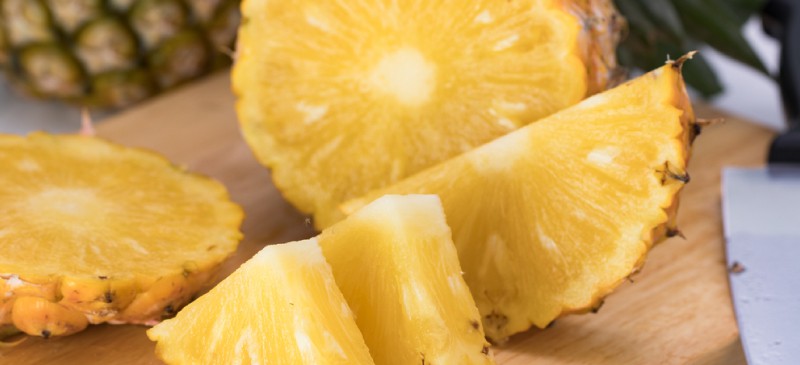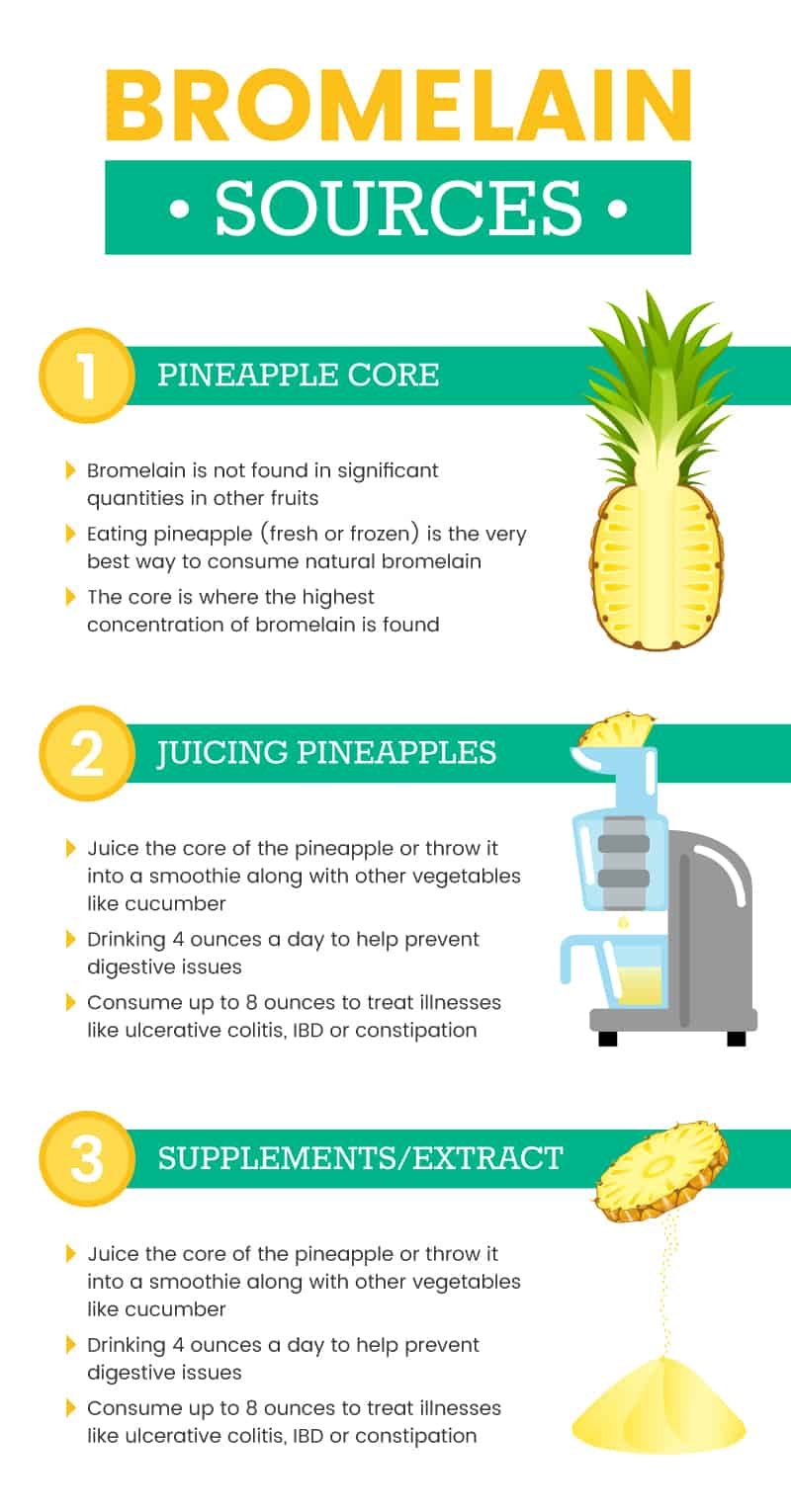This Dr. Axe content is medically reviewed or fact checked to ensure factually accurate information.
With strict editorial sourcing guidelines, we only link to academic research institutions, reputable media sites and, when research is available, medically peer-reviewed studies. Note that the numbers in parentheses (1, 2, etc.) are clickable links to these studies.
The information in our articles is NOT intended to replace a one-on-one relationship with a qualified health care professional and is not intended as medical advice.
This article is based on scientific evidence, written by experts and fact checked by our trained editorial staff. Note that the numbers in parentheses (1, 2, etc.) are clickable links to medically peer-reviewed studies.
Our team includes licensed nutritionists and dietitians, certified health education specialists, as well as certified strength and conditioning specialists, personal trainers and corrective exercise specialists. Our team aims to be not only thorough with its research, but also objective and unbiased.
The information in our articles is NOT intended to replace a one-on-one relationship with a qualified health care professional and is not intended as medical advice.
Bromelain: the Pineapple Enzyme that Fights Multiple Diseases
June 5, 2023

With its sharp leaves and thick, knobby skin, the exterior of a pineapple doesn’t give any indication of the goodness inside. First, this fruit is known for its juicy, sweet golden flesh but increasingly also for its secret weapon: bromelain.
What most people don’t realize about pineapples is that they’re infinitely more useful to humans than just as a garnish for tropical drinks. Due to powerful enzymes that the pineapple contains — especially the protein-digesting enzyme called bromelain — this delicious fruit is also a food that operates like medicine.
What Is Bromelain?
Pineapple, a South American native and a cherished part of Hawaiian folk medicine, is one of the richest sources in the world of the enzyme bromelain. It is composed of several endopeptidases and compounds like phosphatase, glucosidase, peroxidase, cellulase, escharase and protease inhibitors. Usually bromelain supplements or extracts refer to enzymes extracted from pineapple stems or cores, rather than from the fruit’s flesh.
Used widely as a natural remedy to treat everything from indigestion to allergies, pineapple is not only brimming with this enzyme, but also vitamin C, vitamin B1, potassium, manganese and phytonutrients. While pineapple has many benefits, the real secret to its healing powers is definitely bromelain.
What is bromelain used to treat? In the medical world, this fascinating compound has traditionally been used as a potent anti-inflammatory and anti-swelling agent. Research have also shown that it has fibrinolytic, antiedematous and antithrombotic properties, meaning it helps prevent blood clots, edema and swelling.
In the past, this enzyme was also used as a meat tenderizer, reason being it helps to soothe and relax tense, inflamed muscles and connective tissue. Additionally, recent studies have found evidence that this enzyme may stop lung metastasis, which suggests that bromelain can be used to treat a wide variety of diseases, potentially including cancer.
A look at the scientific literature, which includes 1,600-plus articles evaluating the medicinal benefits of bromelain, shows that it has been used to treat a wide range of health problems, including:
- Connective tissue injuries, such as ACL tears
- Sprained ankles
- Tendonitis
- Allergies
- Arthritis, joint pain and osteoarthritis
- Digestive issues like heartburn or diarrhea
- Cardiovascular disorders
- Asthma
- Autoimmune diseases
- Cancer
- Inflammatory bowel disease
- Sinus infections, such as bronchitis and sinusitis
- Surgical trauma and slow healing of skin wounds or burns
- Poor absorption of drugs, especially antibiotics, and symptoms due to taking medications
Benefits
1. May Help Prevent Cancer
Pineapple is now recognized in the scientific community as one of the top cancer-fighting foods. In studies, bromelain has been found to have natural anti-cancer effects, including promoting apoptotic cell death and preventing tumor growth. It’s been shown in animal studies that it can induce the production of distinct cytokines, that it has antimetastatic efficacy and that it inhibits metastasis by reducing platelet aggregation.
Studies have linked bromelain to increased protection against breast and lung cancer, and the journal Anticancer Drugs published results from a clinical trial that suggested it affects malignant peritoneal mesothelioma — a rare cancer caused by asbestos exposure.
According to the study, it was uncovered that “The addition of bromelain increased the die off of cancer cells (cytotoxicity) significantly … Bromelain has the potential of being developed as a therapeutic agent in treating malignant cancer.”
2. Helps Treat Digestive Disorders
Why is bromelain good for you if you suffer from indigestion or a gastrointestinal disorder? Because it’s an enzyme that specifically helps with digesting proteins and has been found to help your body absorb nutrients and even medications more efficiently. Studies suggest that it decreases colonic inflammation and reduces secretion of pro-inflammatory cytokines that damage the gut lining.
Because studies indicate that it’s very effective at healing tissues within the gastrointestinal tract, bromelain is beneficial for people with any of the following GI problems:
- Inflammatory bowel disease
- Ulcerative colitis
- Dyspepsia, or peptic ulcers due to heliobactor pylori infections
- Colon cancer
- Constipation
- Crohn’s disease
- Heartburn
- Diarrhea

3. Supports Faster Recovery from Surgery and Injuries
Bromelain’s anti-inflammatory properties make it a great natural painkiller and alternative to taking pain-killing medications, such as aspirin. One study that evaluated bromelain’s ability to treat patients who had impacted third molars extracted found that it supported wound healing and helped decrease pain and swelling following the patients’ operations.
Most patients who undergo this surgery experience significant post-operative symptoms, and unfortunately, antibiotics and painkillers are not always effective at preventing infections or other discomfort during the healing process. Of the 80 people who participated in the study, those who were prescribed bromelain reported “significantly lower” post-operation pain, swelling and even redness compared to the control group prescribed a generic painkiller.
4. Fights Allergies and Asthma
The journal Evidenced-Based Complementary and Alternative Medicine highlighted the results of a study that investigated how bromelain affected mice suffering from asthma. The study produced some interesting results — for example, that bromelain reduces allergic sensitization and stops development of other inflammatory responses affecting the airways.
These findings suggests that this enzyme helps modulate the entire immune system. It can actually help prevent allergies by addressing the root cause — a hyperactive, oversensitive immune system. It was observed in the study that CD11c (+) dendritic cells and DC44 antigen-presenting cells were kept at bay when supplementing with bromelain, a sign that this enzyme is capable of targeting the underlying cause of asthma and allergies.
5. Helps Prevent or Treat Sinus Infections (Rhinosinusitis)
To see whether or not a daily dose of bromelain (300 FIP units, 600-milligram tablets) could help people suffering from chronic sinusitis (inflammation of the sinuses), researchers at the University of Cologne in Germany took 12 patients who had already had sinus surgery and treated them with bromelain for three months.
They discovered the following bromelain benefits: Total symptom scores improved, total rhinoscopy scores improved, overall quality of life was enhanced and there were no adverse effects reported.
Because surgery can oftentimes be ineffective at treating sinusitis, this research brings a lot of hope to people suffering from chronic sinus problems.
6. Helps Decrease Joint Pain
Due to its powerful anti-inflammatory and analgesic characteristics, bromelain is fantastic for reducing acute or chronic joint pain. The journal Alternative Therapies in Health and Medicine published a research trial that evaluated 42 osteoarthritis patients with degenerative spine or painful joint conditions.
Two 650-milligram capsules of bromelain were given to the patients two to three times each day on an empty stomach (depending on whether they had acute or chronic pain). Researchers discovered that pain decreased up to 60 percent in participants dealing with acute pain and more than 50 percent in those with chronic disorders.
The researchers’ conclusion was that “Bromelain has been demonstrated to show anti-inflammatory and analgesic properties and may provide a safer alternative or adjunctive treatment for osteoarthritis.” Therefore, bromelain may help remedy degenerative joint disease, arthritis and osteoporosis.
7. May Support Weight Loss
Does research suggest there’s any link between bromelain and weight loss? Its effects on weight management and fat cells are still under investigation, but there’s reason to believe that it may help with weight loss due to its anti-inflammatory effects, ability to reduce pain, and capability of improving physical abilities and digestion.
According to a 2017 article published in PLOS One, “stem bromelain (SBM) is used as an anti-obesity alternative medicine.” Some studies have found that bromelain helps downregulate adipocyte fatty acid-binding protein, fatty acid synthase and lipoprotein lipase. It may also inhibit adipogenesis (cell differentiation that can contribute to formation of fat cells) and reduce triglyceride accumulation.
Foods
Wondering what fruits have bromelain in them, other than pineapple, and are there any other ways to get it other than from eating certain foods? The only other fruit with some bromelain are grapefruits but not at the same quantity as pineapple.
There are three primary ways to incorporate bromelain into your natural health regimen:
1. Pineapple Core
First, of course, is eating the fiber-rich core of a juicy, ripe pineapple. Bromelain is not found in significant quantities in other fruits, although pineapple is sometimes eaten along with immature, green papaya to increase absorption and provide the beneficial enzyme called papain.
Eating pineapple (fresh or frozen) is the very best way to consume natural bromelain. It’s found in all parts of the pineapple but most concentrated in the core.
Keep in mind that the riper the fruit is, the softer the core will be. So, make sure you keep your pineapple out on your counter for an extra day or two — this way you’re not gnawing on a tough stem. Note that the flesh of a pineapple is also good for you but doesn’t have the high bromelain content like the core does. The core is where the highest concentration is found.
2. Juicing Pineapples
Juicing the core of the pineapple or throwing it into a smoothie along with other vegetables like cucumber is an easy way to consume bromelain. Drinking fresh pineapple juice has been suggested to be a powerful remedy against inflammatory diseases.
It’s recommended to drink four ounces a day to help prevent digestive issues and up to eight ounces to treat illnesses like ulcerative colitis, inflammatory bowel disease or constipation.
3. Bromelain Supplements/Extract
Bromelain supplements are usually found in the form of dried yellow powder, extracted from pineapple juice that is subjected to centrifugation, ultrafiltration and lyophilization. Taking a natural bromelain supplement or proteolytic enzyme supplement with bromelain can be quite effective if you’re treating a specific inflammatory or chronic disease.
If you are trying to improve digestion, you should take bromelain supplements with meals. For all other health conditions, you should take it on an empty stomach.
 Supplements and Dosage
Supplements and Dosage
How much bromelain should you take each day? The most commonly prescribed dosage ranges between 80–320 milligrams, two to three times daily (so around 240–960 milligrams per day).
For specific conditions, higher doses may be prescribed. Below are suggested bromelain dosages depending on the condition you’re treating:
- To treat arthritis — 400 milligrams taken 1–2 times daily
- To help with allergies — 1,000 milligrams daily of bromelain and quercetin
- For help preventing cancer — 2,000 milligrams daily, ideally take with other proteolytic enzymes
- To improve digestion — 500 milligrams taken 3 times daily with meals; some people choose to mix bromelain powder into water and drink before meals
- For help with surgery recovery — 1,000 milligrams 3 times daily taken between meals
Bromelain should be taken on an empty stomach, unless you are taking it to improve digestion. Take it with meals if you’re using it for digestive purposes.
Bromelain is considered a natural supplement and not a medication, therefore it is not regulated by the FDA. However the Dietary Supplement Health and Education Act (DSHEA, 1994) allows the sale of bromelain-containing dietary supplements, especially for the use of treating skin wounds and burns.
In terms of where to buy it, look for bromelain in health food stores or line. Some of the best bromelain supplements combine it with other digestive enzymes, furthering their effects.
For example, you’ll find amylase (an enzyme needed to properly digest glucose) in a general digestive enzyme supplement that includes other key digestive enzymes as well. Look for a full-spectrum enzyme blend for general digestive improvement and other benefits.
Recipes
To make bromelain’s effects even more powerful, combine it with other anti-inflammatory compounds, such as quercetin or curcumin (the active ingredient found in turmeric). Quercetin is a flavonoid antioxidant found in beverages and foods like red wine, green tea, kale and blueberries. It helps fight free radicals and has antiviral, antimicrobial, anti-inflammatory and anti-allergic capabilities.
Turmeric is a powerful anti-inflammatory spice that is used medicinally as a natural alternative to, or in conjunction with, medications, such as NSAIDs, antidepressants (Prozac), anticoagulants (aspirin), arthritis drugs and even cancer treatments like chemotherapy.
Making a smoothie with berries, pineapple, greens and turmeric is one way to obtain all of these medicinal herbs and compounds together.
Below are recipes that will provide you with bromelain:
- Pineapple and Cilantro Smoothie Recipe
- Anti-Inflammatory Juice Recipe
- Pina Colada Smoothie Recipe
- Sweet and Sour Chicken with Pineapple Recipe
History
Pineapple has a long history of use in places, including Hawaii, South America and Asia. According to the Gale Encyclopedia of Alternative Medicine, “Bromelain was first isolated from pineapple juice in 1891 and introduced as a therapeutic supplement in 1957.”
Some of the earliest medicinal uses of pineapple included applying pineapple dressings to wounds and skin injuries to reduce swelling and promote healing, and drinking pineapple juice to treat stomach aches and improve digestion.
In Germany, bromelain has been safely used to treat connective tissue injuries, swelling following surgery and blood clots for decades. It is considered to be very safe when taken in moderate doses and continues to be associated with very impressive benefits as more studies are continue to be conducted.
Risks and Side Effects
Bromelain is usually well-tolerated and unlikely to cause side effects. However, there are some instances when it’s unsafe to take this enzyme. Because it helps prevent blood clots, it’s important to be especially careful when consuming extra pineapple or bromelain supplements if you’re any taking blood-thinning medications.
The same applies to surgery: Avoid taking it immediately following surgery unless you speak with your doctor first, as this can increase risk for bleeding.
Side effects that have been associated with this enzyme usually include gastrointestinal symptoms, such as nausea, change in feces and increased gas. Bomelain allergy symptoms are possible and can include itchy mouth or skin, developing a rash, trouble breathing, nasal congestion, and watery eyes.
Final Thoughts
- Bromelain is a protein-digesting enzyme extracted from the flesh and stem of the pineapple plant.
- Benefits of bromelain include reducing inflammation and swelling, promoting wound healing, easing digestion, reducing muscular or joint pain, benefiting heart health, and reducing allergies or asthma.
- It can be obtained from eating pineapple (especially the stem/core), drinking pineapple juice or from taking it in supplement form. Dosages range from about 200–2,000 milligrams daily (usually around 500–800 milligrams per day).
- This enzyme is very well-tolerated but shouldn’t be taken by people taking blood-thinning medications, who have bleeding disorders or who are allergic to pineapple.

